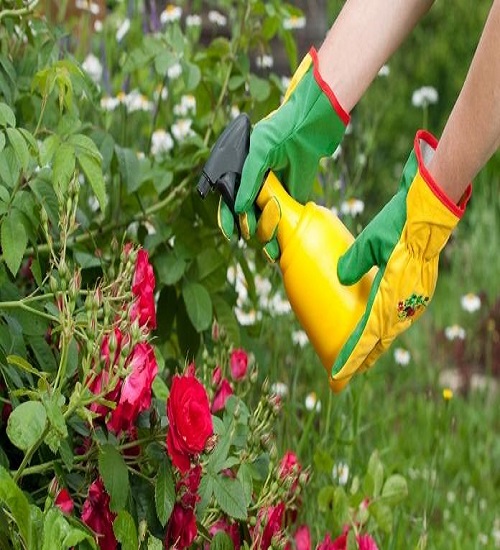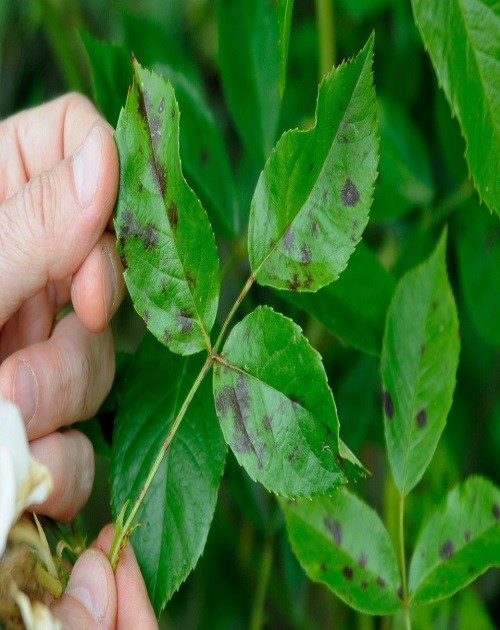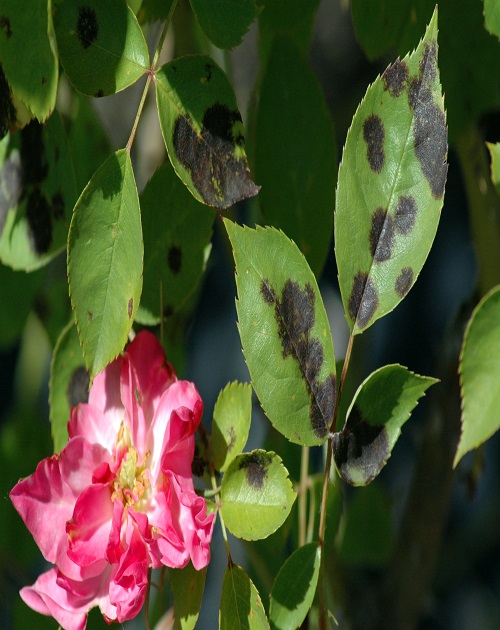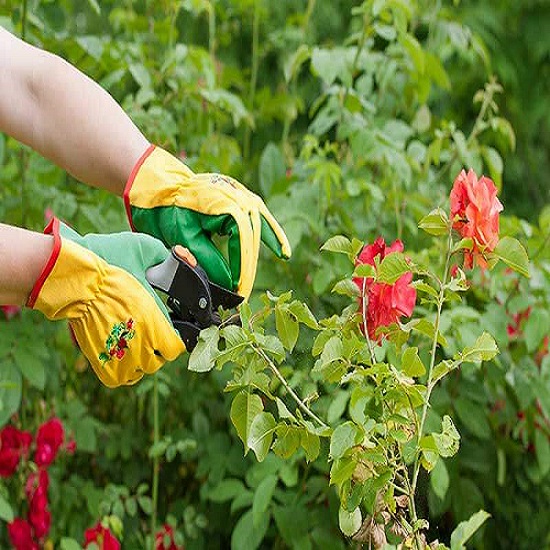In the eyes of rose producers, black spot would be the most dangerous fungal disease that threatens roses. Once your roses are infected with black spot disease, it can be difficult to get it under control.
The initial indicators of black spot are irregularly shaped patches up to half an inch in diameter, most commonly on the upper surface of the leaves. Foliage turns yellow and eventually falls off the plant prematurely as the illness progresses upwards from the base.
During the first year or two, black spot is unlikely to kill your plants, but if left unchecked, it will make them more vulnerable to other illnesses and less able to withstand harsh winters.
Black spot treatment
You can’t reverse black spot once you notice the telltale signs of the disease, but you can stop the virus from spreading to fresh leaves. Persistence is essential for any treatment to be effective:
- It’s best to begin treating your roses as soon as they’re in bloom.
- Spray them every week or two, and after a hard rain, if necessary.
- Spray the whole plant, including the stems and the tops and bottoms of the leaves.
- A dormant spray can be used over the winter to prevent fungus spores from overwintering in the soil.
Fungicide: Sulfur, neem oil, and copper are all effective fungicides for eradicating black spot on plants. A wide variety of fungal infections can be controlled with foliar sprays or dusting powders, which are the most common application forms for these medications.
Home remedies: To treat black spots, you can make your own antifungal spray at home with items you probably already have in your pantry. One tablespoon of baking soda combined with one gallon of water, together with horticultural oil or liquid soap, has been found to be an effective treatment for powdery mildew, according to a Cornell University researcher.
Sprays prepared from milk, vinegar, or hydrogen peroxide diluted with water have been used by certain gardeners with various degrees of success. We don’t necessarily suggest these home treatments, but they may be worth a try.

How do black spots spread?

The wind is the primary means of dispersing black spot spores from leaf to leaf and plant to plant, although moisture is required for them to germinate. As a result, lengthy periods of rainy and humid weather are excellent for the spread of black spot.
Wich roses are more prone to black spots?
The black spot disease can affect any type of rose, but some cultivars are more vulnerable than others. According to the University of Nebraska-Lincoln Extension, floribundas, shrub roses, and climbing roses are the most disease-resistant varieties of rose, while hybrid tea roses, Grandiflora, and miniature roses are the most susceptible.
Rose bushes with dense foliage or leaves that grow close to the ground are more likely to be infected than roses with an open, breezy canopy, on the whole.

Tips To Prevent Black Spots
Managing black spot once it’s established might be a challenge. In order to avoid your roses becoming infected with black spot, follow these tips:
Keep the leaves as dry as you can because the spores can only grow on wet surfaces.
Avoid watering from above or water early in the day so that the foliage has time to dry before evening. Avoid watering from overhead sources.
Proper spacing and frequent pruning will help your roses breathe better.
Plant your roses in a location with lots of direct sunlight so that their leaves can dry out quickly.
Get rid of any sick leaves from your roses and throw them away. Infected canes should be removed and disposed of as well. You should clean up your rose garden in the fall to keep black spot from overwintering and returning in the spring when new growth emerges. You can’t kill spores in your garden, no matter how harsh the winter is.
Pro Tip: Denise Kelly of Variegata Studios recommends spraying liquid kelp on rose bushes to toughen the leaf cuticle, making the plant less vulnerable.


